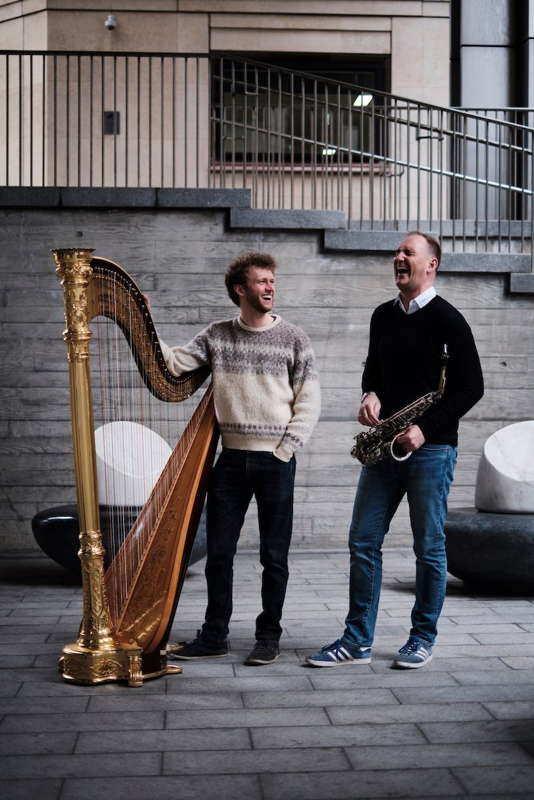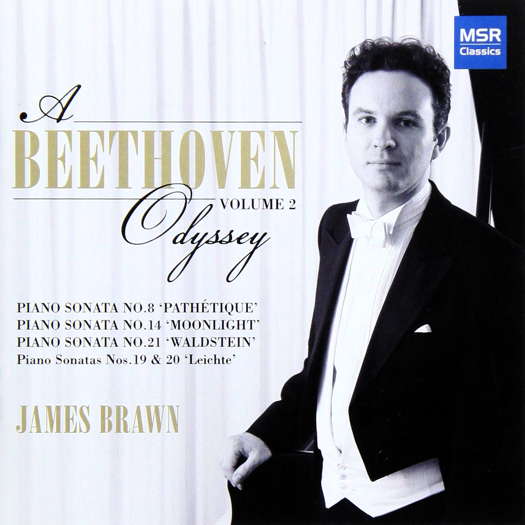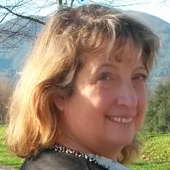- Vladimír Válek
- light music
- Lily Pons
- Jacob Meyerbeer
- Fred May
- Anna Clyne
- Nazis
- Mozart: String Quartet No 15 K 421
A Fascinatingly Piquant Sound-world
Music for saxophone and harp, heard by MIKE WHEELER
The combination of saxophone and harp may be uncommon, but it creates a fascinatingly piquant sound-world. Huw Wiggin – moving between soprano and alto saxophone – and Oliver Wass took us through a chronologically and stylistically wide-ranging slice of their repertoire - Derby Chamber Music, Multi-faith Centre, Derby University, 11 February 2022.
That repertoire is largely dependent on transcriptions, as you might expect; many of those we heard were by Wiggin himself, alone or in collaboration. Some worked better than others. The combination of soprano saxophone and harp gave an unexpectedly French sound to the opening of the C major Sonata for flute and continuo, BWV 1033, attributed to J S Bach. No problem there, but the balance was not always ideal – the soprano sax ideally needs a bigger space in which to project. But the slow movements flowed well, and the quick ones were lively. In Remo Giazotto's G minor Adagio, which some still persist in attributing to Albinoni, Wass's steady pulse brought out the piece's sarabande-like character. A graceful account of Debussy's Prelude La Fille aux Cheveux de Lin formed an agreeable contrast with two of Chick Corea's Children's Songs, the capricious No 6, and the skippy No 7.

Huw Wiggin and Oliver Wass. Photo © Alessandro Tear
Each player had at least one solo piece. Mischa Mullov-Abbado's Red Roofs, for harp - I think that was the title; it wasn't easy to hear, and the composer's website doesn't seem to mention it at all - had quiet energy, and a right-hand theme was allowed to emerge unobtrusively. For a composer of Mullov-Abbado's reputation, though, it seemed surprisingly unadventurous, staying mainly around the harp's middle register.
The two players came together again in Belá Kovács' Sholem-alekhem, Rov Feidman!, a tribute to one of the great figures of klezmer. After the opening lament, dance starts to take over, and the pacing of this was nicely judged, leading to a riotous ending.
After the interval, it was Wiggin's turn for a solo. Ku Ku, for soprano sax, by Australian composer Barry Cockroft, combines a slow melody with jazzy riffs and other rapid figuration. Every detail was sharply focused. Wass returned for a zippy account of Rimsky-Korsakov's Flight of the Bumble-Bee, then had the floor to himself again for transcriptions of Chopin's Fantasy-Impromptu, Op 66, and Tárrega's guitar classic Recuerdos de la Alhambra. The Chopin felt less sturdy than the piano original, but the whisper to which Wass reduced the final moments was enchanting. The Tárrega transcription was not so successful, reducing the tremolando figures that have made the piece famous to a mere background effect.
Four of Falla's Seven Spanish Folk Songs followed, and here the transcriptions worked particularly well. The dance-rhythms of 'El paño moruno’ and 'Polo' were kept on their toes. In between, the lament of 'Asturiana' was both dignified and keenly felt, while 'Nana' was a gently touching lullaby.
Jules Demersseman's Introduction and Variations on 'The Carnival of Venice' provided the evening's let-your-hair-down finale. The theme has attracted generations of virtuoso performer-composers from Paganini onwards. Wiggin and Wass steered through the technical challenges with aplomb, and it didn't outstay its welcome, as pieces of this kind sometimes do. A nice note of inconsequential fun to end on.
Copyright © 20 February 2022
Mike Wheeler,
Derby UK

CLASSICAL MUSIC ARTICLES ABOUT DERBY UNIVERSITY
CLASSICAL MUSIC ARTICLES ABOUT DERBYSHIRE




